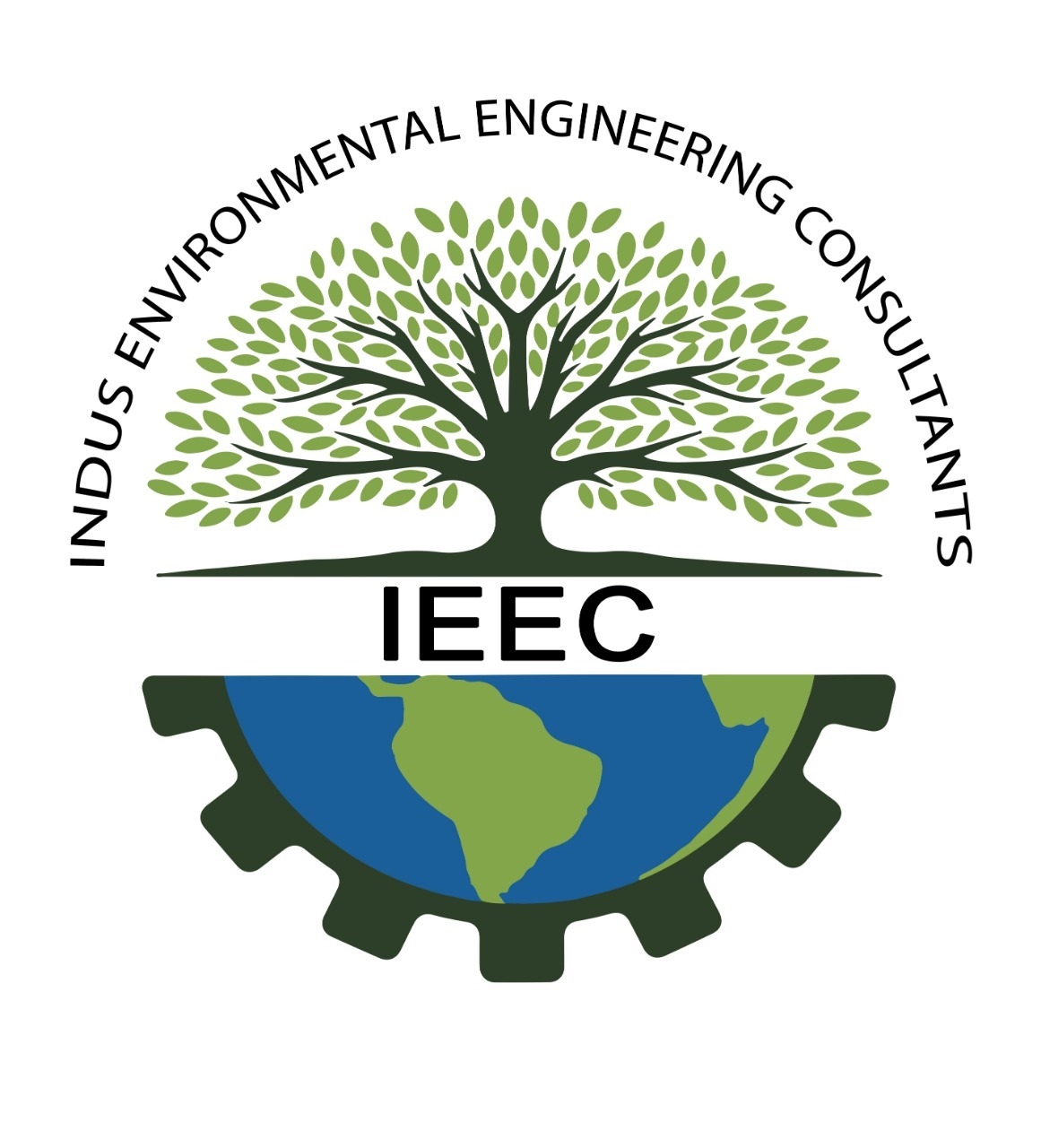
Due Diligence Report
Due Diligence Report
JS Private Equity
Mauritius & USAID
Lahore and Multan
Environmental Impact Assessment
By Indus Enviro Experts
As part of the comprehensive due diligence process, an extensive environmental impact assessment was conducted by Indus Enviro Experts, a recognized leader in environmental consultancy. This evaluation was undertaken to assess M/S VEDA Transport Solutions’ environmental practices, sustainability initiatives, and compliance with relevant environmental regulations, with a focus on minimizing the ecological footprint of its operations in Lahore and Multan.
Objective of Environmental Assessment:
The primary aim of the environmental due diligence was to evaluate the following:
- M/S VEDA’s adherence to environmental regulations and standards applicable in Pakistan.
- The sustainability of its operational practices, particularly in relation to fuel consumption, waste management, emissions, and resource efficiency.
- Potential risks and opportunities in reducing the company’s environmental impact and ensuring long-term environmental sustainability.
- How M/S VEDA’s operations might affect local ecosystems and communities, especially in terms of air, water, and noise pollution.
Methodology:
The environmental assessment was carried out through a combination of on-site inspections, interviews with key personnel, review of operational records, and analysis of emissions and waste management reports. The methodology included:
- Site Visits: Detailed inspection of M/S VEDA’s operational hubs in Lahore and Multan, including vehicle depots, maintenance facilities, and routes.
- Regulatory Review: An in-depth review of compliance with local environmental laws, including waste disposal regulations, emissions standards, and transport-specific legislation.
- Sustainability Practices Audit: A comprehensive audit of M/S VEDA’s efforts toward sustainability, including energy consumption, fleet management, and waste reduction initiatives.
- Impact on Local Ecosystems: Analysis of noise levels, air quality data, and community concerns regarding the environmental impact of the company’s transport operations.
Key Findings:
Environmental Compliance:
- Regulatory Compliance: M/S VEDA Transport Solutions is partially compliant with environmental regulations, but there are gaps in areas such as waste disposal, hazardous material handling, and emissions reporting. For instance, some operational sites lack appropriate waste segregation practices, and there is minimal tracking of hazardous waste generated by vehicle maintenance activities.
- Recommendations: It is recommended that M/S VEDA enhance its adherence to local environmental laws, particularly in relation to waste management, emissions, and water pollution. The company should ensure all facilities meet the necessary environmental standards and obtain certifications where required, such as ISO 14001 (Environmental Management).
Fuel Usage & Emissions:
- Fleet Age and Emissions: A significant portion of M/S VEDA’s fleet consists of older vehicles, which are less fuel-efficient and contribute to higher levels of air pollution, including carbon dioxide (CO2) and nitrogen oxide (NOx) emissions. Based on emissions data, the company is exceeding local environmental limits for air quality, especially during peak operational hours.
- Fuel Efficiency: Despite some newer vehicles in the fleet, the overall fuel efficiency is still suboptimal. The use of diesel engines, which contribute to harmful particulate matter emissions, is prevalent.
- Recommendations: M/S VEDA should consider transitioning to newer, more fuel-efficient vehicles or hybrid/electric models over the next 3-5 years. This shift would not only reduce emissions but also align the company with global sustainability trends, attracting environmentally conscious customers and investors. A fleet modernization strategy should be developed, including the adoption of electric vehicles (EVs) for urban routes.
Sustainability Practices:
- Waste Management: M/S VEDA currently lacks a formal waste management policy, and waste generated by vehicle maintenance and operations is not properly segregated. This includes oils, lubricants, packaging materials, and other materials that could be recycled or disposed of in an environmentally friendly manner.
- Energy Usage: The company has made some progress in reducing energy consumption at its facilities but lacks an overarching sustainability plan to track and reduce total energy use. Energy consumption is primarily driven by vehicle operations, with limited use of renewable energy sources at operational hubs.
- Recommendations: M/S VEDA should implement a comprehensive waste management strategy that includes segregation, recycling, and safe disposal methods. Additionally, the company should develop a sustainability plan to reduce energy usage by incorporating energy-efficient lighting, HVAC systems, and renewable energy sources like solar power at key facilities. Partnering with local waste recycling firms could also improve the company’s waste management practices.
Impact on Local Ecosystems:
- Noise Pollution: Noise generated by M/S VEDA’s transport operations is a significant concern, especially in densely populated areas of Lahore and Multan. The constant movement of trucks and other vehicles causes elevated noise levels that affect local communities and wildlife.
- Air Pollution: Diesel-powered vehicles emit pollutants that significantly degrade air quality in the regions where M/S VEDA operates. The company’s routes through residential and commercial zones exacerbate health risks associated with poor air quality, such as respiratory illnesses and cardiovascular diseases.
- Water Pollution: M/S VEDA’s vehicle maintenance practices could lead to runoff from chemicals such as oils, solvents, and detergents, which may contaminate nearby water sources.
- Recommendations: M/S VEDA is advised to install noise reduction technologies, such as better vehicle mufflers and limiting operations during night hours in noise-sensitive areas. For air pollution, the company should gradually phase out older, diesel-powered vehicles in favor of cleaner alternatives. The company is also encouraged to implement practices for preventing water contamination, such as proper containment systems and treatment of wastewater from maintenance activities.
Actionable Recommendations by Indus Enviro Experts:
Fleet Modernization Plan: Develop a multi-phase plan for upgrading the fleet, including the introduction of hybrid or electric vehicles, particularly for urban routes. This will significantly reduce fuel consumption, emissions, and long-term operational costs.
Environmental Policy Development: M/S VEDA should create a formal environmental policy that outlines specific goals and targets for reducing emissions, waste, and energy consumption. This policy should be aligned with international best practices and include clear timelines for implementation.
Sustainable Logistics Practices: Incorporate eco-friendly logistics strategies such as route optimization to reduce fuel consumption, invest in vehicle telematics to monitor fuel usage, and implement driver training programs focused on reducing fuel wastage and lowering emissions.
Community Engagement: M/S VEDA should engage with local communities in Lahore and Multan to address environmental concerns, particularly around air quality and noise. This could include public awareness campaigns, collaboration with environmental organizations, and participation in local green initiatives.
Certification and Compliance: It is recommended that M/S VEDA work towards obtaining environmental certifications such as ISO 14001, which will demonstrate the company’s commitment to environmental management and sustainability. Additionally, the company should focus on improving regulatory compliance, particularly with waste disposal and emissions standards.
Conclusion:
The environmental impact assessment conducted by Indus Enviro Experts reveals several areas where M/S VEDA Transport Solutions can improve its environmental practices and sustainability efforts. By implementing the recommended actions, the company can reduce its environmental footprint, ensure regulatory compliance, and strengthen its reputation as an environmentally responsible business. Addressing these concerns will not only help meet legal and regulatory requirements but will also position M/S VEDA as a forward-thinking company committed to contributing positively to the environment and community health.

